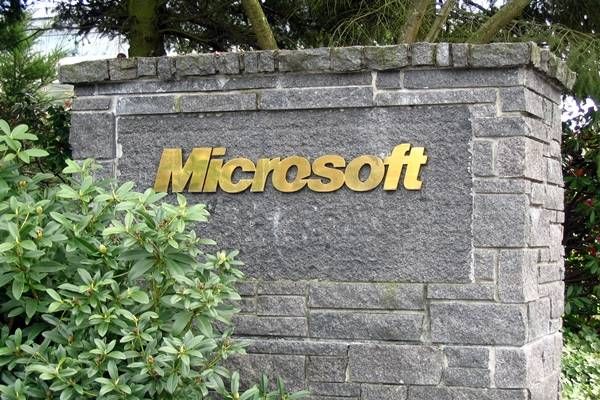 As the ClayNation was busy voting on the Tweeterwall last week, an odd and scary screen popped up for many voters. The page looked like an announcement from the user’s security system. But, if one looked carefully, it was, in fact, a web site that was trying to scam the user and infect their computer. Word spread quickly and fortunately, most of the voters were not infected by the scam.
As the ClayNation was busy voting on the Tweeterwall last week, an odd and scary screen popped up for many voters. The page looked like an announcement from the user’s security system. But, if one looked carefully, it was, in fact, a web site that was trying to scam the user and infect their computer. Word spread quickly and fortunately, most of the voters were not infected by the scam.
When I found the following information posted on Thursday, I found it timely and interesting. I hope that Microsoft and the courts can slow these people up.
 On Thursday, September 24th, Microsoft filed five civil lawsuits, the first of their kind against a nasty phenomenon known as malvertising. Malvertising is the practice of hiding malicious codes in seemingly safe online ads that instead seek to prey on users.
On Thursday, September 24th, Microsoft filed five civil lawsuits, the first of their kind against a nasty phenomenon known as malvertising. Malvertising is the practice of hiding malicious codes in seemingly safe online ads that instead seek to prey on users.
Microsoft has tried to work with ad networks to thwart such “malvertising” in the past, but this is the first time it has gone to court.
Tim Cranton is an Associate General Counsel for Microsoft. He said:
“Malvertiser ads may redirect users to a website that advertises rogue security software, also known as scareware that falsely claims to detect or prevent threats on the computer. Our filings in King County Superior Court in Seattle outline how we believe the defendants operated, but in general, malvertising works by camouflaging malicious code as harmless online advertisements.”
Other forms of malvertising infect a victim’s computer with malicious software for various purposes, including stealing users’ personal information, or holding the user’s computer for ransom in order to get paid to disinfect the PC.
Last week, The New York Times’ Web site was hit by a form of malvertising. It told readers that their computer might be infected with a virus and redirected them to a site that purports to offer antivirus software.
A Microsoft spokesperson told CNET News that
“Scareware is often distributed among criminals, which therefore results in many of the animations a user may see utilizing a common design and interface. However, without additional information and specific details about the attacks, we cannot be certain that any of today’s filings directly relate to the attacks on The New York Times’ Web site.”
 During the past year, Microsoft has become aggressive against spammers, click fraudsters and the users of scareware. Now they have added malvertisers to this list. They are making a concerted effort to make the web a safer place to use.
During the past year, Microsoft has become aggressive against spammers, click fraudsters and the users of scareware. Now they have added malvertisers to this list. They are making a concerted effort to make the web a safer place to use.
Besides filing these lawsuits, Tim Cranton posted a short list of common-sense tips for keeping internet users safe. The tips included making sure users have the latest antivirus updates and a firewall as well as anti-malware tools. Additionally, smart users should be careful of offers of free security and virus scans by companies they don’t know, and never provide personal information on a Web site unless the user is certain the site is safe.

THANK YOU for posting this vital information. I was aware of this latest malicious and sneaky malvertisers spamming. It is so very important that everyone update their antivirus and antispam programs daily. Many of my friends don't have them set to update automatically, and in this day and age of all the creeps with nothing better to do, it is a must.
Thanks again, and Happy Friday!
Malvertising, another new term from the net. That happened to me at the TW site, but fortunately, I stopped or my antivirus/spam kicked in.
Way too scary. Fortunately I was not scammed this time, but have been before.
A very timely and informative blog, musicfan….thank you! And thanks go to the Clay Aiken fan boards who warned members about this potential threat and how to handle it. It came in handy for me when I encountered the suspicious warning myself. Thankfully my computer was not infected. I'm glad to see that Microsoft is taking action on this.
very interesting.. I wonder how mac's don't get these but regular pc's do…
Thank you for the information. Very scary.
Thank you for this article. I had no idea what malvertisers was!
Glad to see this is finally hitting the court system. It is about time.
This was a very informative article for me. I had no idea this happened as a result of maladvertisers. I am glad to read Microsoft is taking this seriously and is working to stop them.
I have had this happen to me, but since I have limited knowledge of the internet, I did not really know what to do. I am glad I will now know what is happening if this comes up again. Thanks!
I'm hoping that the courts persue this crime as a form of fraud (at a minimum) and this leads to an increase in laws and prosecution to protect the average internet user from scams.
I believe that the courts and the government, both local and federal, really need to get on the ball and start writing legislation that protects the general public from online predators on the internet. Not just this type of scam, but the content on some blogs and other online sites.
It's so wrong to wait until the absolute worse happens before action is taken. It should never be that way.
Thank you for the article!
I had this virus scare 3 times recently using Google Search for different links..I didn't know what to do initially and had to take the hard drive to have him look at it. I finally figured out it was not a real virus. Thanks for all the technical assistance from other posters in my message board, it was able to get out of it…..and saved myself another $75 X 2.
I think it's great that Clay fans care about their friends and try to help each other out with problems and concerns.
Hello, Thanks for this information, I think is very important, and I really like this blog. I'm always around here.
Rossy
Musicfan,
Thank you for the information on "malvertising." For sure, anyone surfing the Net needs to read this blog entry. Clay Aiken fans recently were introduced to the phenomenon in a big way when pariticipating in the Tweeterwall voting.
Happy Weekend!
Caro
Thank you for the info on malvertising. I am so glad to hear it is going to court. I had never heard of malvertizers before, but knew what they did. and OH what a great video of Clay!
It sure was timely. That was exactly what was causing the problems on that TweeterHell oops Tweeterwall site. Now I know what it's called. Thanks!
Very interesting article. I am glad that Microsoft wants to do something about it. I hope they can find out who is doing it and fine them or whatever they do in these cases. I think its pretty low-down for someone to do this. I know, in my case, it would be very hard for me to pay to have this fixed.